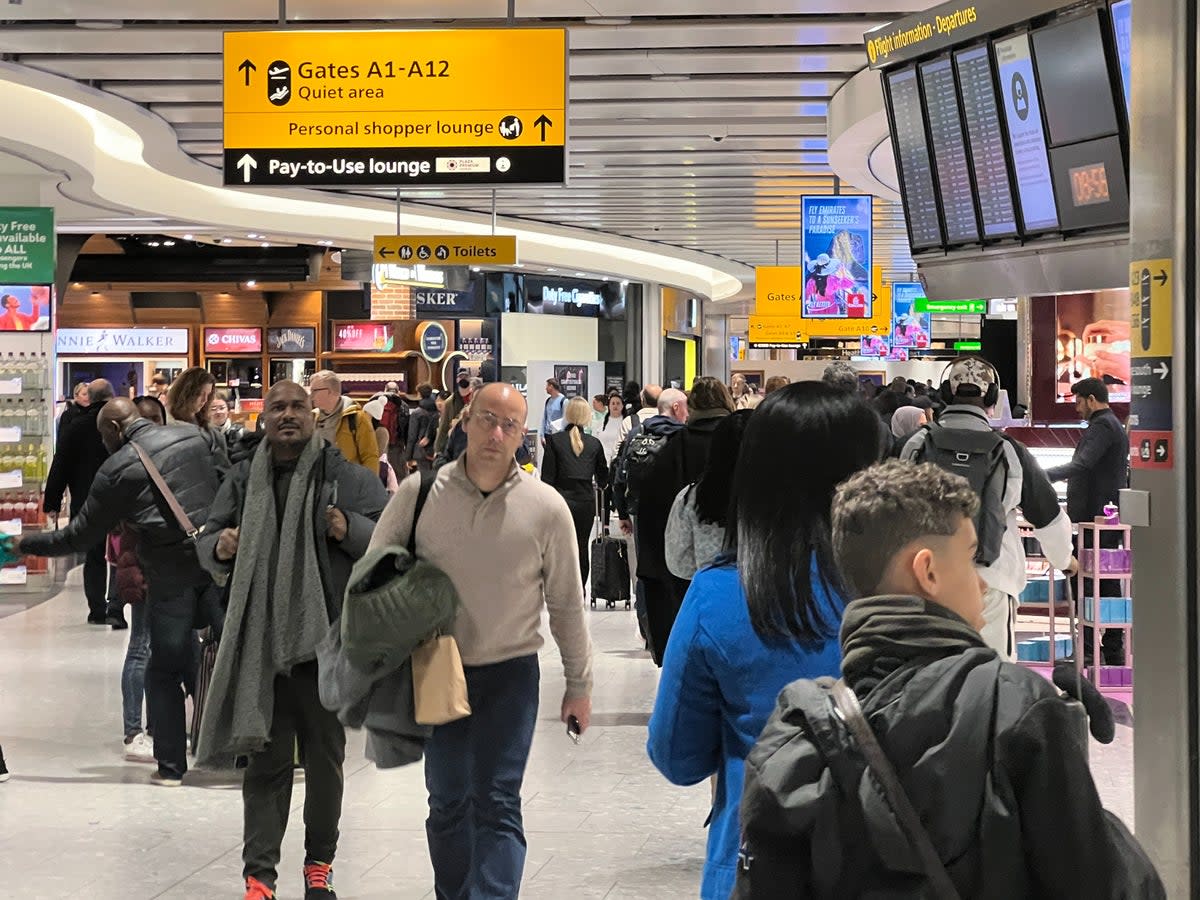Cut extra red tape for Heathrow airport transit passengers, Lords committee urges government

The demand for passengers merely changing planes at Heathrow to apply for an Electronic Travel Authorisation (ETA) should be dropped, a Lords committee says.
The Justice and Home Affairs Committee of the House of Lords has written to Tom Pursglove, minister for Legal Migration and the Border, with strong criticism of the scheme – and citing that the need for an ETA is already driving away transit travellers.
An Electronic Travel Authorisation is currently required from nationals of Gulf countries, plus Jordan and Saudi Arabia, travelling to the UK. The scheme is due to be extended to most nationalities by the autumn of 2024 and to EU citizens (except Irish nationals) by spring 2025.
Within a year, 30 million annual visitors, as well as transit passengers passing through London Heathrow and other airports, will be required to fill in an online form and pay £10.
Unlike all the major Continental European hubs, including Amsterdam, Frankfurt and Paris CDG, international passengers at Heathrow must enrol for an ETA even if they plan to remain “airside” of a couple of hours between flights.
With a multiplicity of possible international routings, the British aviation industry fears passengers will switch away from the UK.
Heathrow airport says in the initial three months since Qatar became the first nationality subject to the new rule, the number of transit passengers from the Gulf state dropped by 14,000.
The Lords committee chair, Lord Foster of Bath, wrote: “We received strong representations from witnesses that this requirement will place the UK at an immediate competitive disadvantage compared to its European neighbours.”
He urged the government to drop the demand for foreign transit passengers to have an ETA even when transiting at London Heathrow airport “unless there are strong security reasons to the contrary”.
The minister earlier told the committee: “There are massive security benefits here that I would not want to undermine.
“There are security risks associated with airside transit.”
The concern is that a passenger could board a flight to Heathrow with an onward connection booked but end their journey in the UK.
In his letter, Lord Foster responded: “If the primary concern is about the potential ‘leakage’ of passengers from airside areas then this should be addressed in other ways. The government should work with the airports to find a solution.”
The cross-party committee also criticises the ETA process for travellers from abroad who want to visit the UK. Prospective visitors are not asked for the purpose of their visit, nor how long they intend to stay.
“We recommend strengthening the line of questions to deter those wishing to enter the country without sufficient self-funding and a departure date,” the committee says.
The Lords also say information about the ETA should be available in French, German and Spanish as well as English, and that much more publicity is needed ahead of the future rollout.
A government spokesperson said: “The introduction of Electronic Travel Authorisation (ETA) is part of the digital transformation of the UK border system, and enhances security by increasing our knowledge about those seeking to come to the UK and preventing the arrival of those who pose a threat.”


